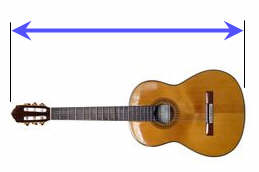- Home
- Science
- Maths
- Pre - School
- Kindergarden
- 1st Grade
- 2nd Grade
- 3rd Grade
- 4th Grade
- 5th Grade
- 6th Grade
- 7th Grade
- 8th Grade
- 9th Grade
- 10th Grade
- 11th Grade
- Units
- Extra Information
- THEORY
- Angles
- Area
- Circles
- Circle: Higher Level
- Circumference
- Diagonals
- Euros
- Length
- Mass
- Mesures de les Illes Balears
- Quadrilaterals
- Place & Position
- Reflection - Translation - Rotation
- Shapes
- Shapes: Edges - Vertices - Faces
- Symmetry
- Types of Lines
- Volume
- Cookery
- Equivalent Fractions
- How do Americans add?
- How do Americans divide?
- How do Americans multiply?
- How do Americans substract?
- Maths Symbols
- Order of Operations
- Place Value
- Times Tables Chart
- Types of Graphs
- Types of Rulers
- More ...
- Much More ...
- Arts & Crafts
- Our Solar System
- Music
- Story Time
- ICT
- Projects
- Road-Safety Education
- Stretch Your Body!
- Contact
Metric Length
You can measure how long things are, or how tall, or how far apart they are. Those are are all examples of length measurements.

Example: This fork is 20 centimeters long
These are the most common measurements:
- Millimeters
- Centimeters
- Meters
- Kilometers

Small units of length are called millimeters.
A millimeter is about the thickness of a plastic id card (or credit card).
Or about the thickness of 10 sheets of paper on top of each other.
This is a very small measurement!

When you have 10 millimeters, it can be called a centimeter.
1 centimeter = 10 millimeters
A fingernail is about one centimeter wide.

Two tape measures, one in mm, the other in cm
You might use millimeters or centimeters to measure how tall you are, or how wide a table is, but you would not use them to measure the length of football field. In order to do that, you can switch to meters.
 A meter is equal to 100 centimeters.
A meter is equal to 100 centimeters.
1 meter = 100 centimeters
The length of this guitar is about 1 meter
Meters might be used to measure the length of a house, or the size of a playground.
And because a centimeter is 10 millimeters:
1 meter = 1000 millimeters
 A kilometer is equal to 1000 meters.
A kilometer is equal to 1000 meters.
When you need to get from one place to another, you measure the distance using kilometers.
The distance from one city to another or how far a plane travels would be measured using kilometers.
Final thoughts about measuring length:
1 centimeter = 10 millimeters
1 meter = 100 centimeters
1 kilometer = 1000 meters
Lots of Examples
A centimeter (cm) is about:
- about as long as a staple
- the width of a highlighter
- the diameter of a belly button
- the width of 5 CD's stacked on top of each other
- the thickness of a notepad.
- the radius (half the diameter) of a US penny
A meter (m) is about:
- a little more than a yard (1 yard is exactly 0,9144 meters)
- the width of a doorway (most doorways are about 0,8 to 0,9 m)
- half the length of a bed
- the width of a large fridge
- the height of a countertop
- four rungs up a ladder
- five steps up a staircase
- the depth of the shallow end of a swimming pool
- the width of a dining table
- the height of a 5 year old
- shoulder to opposite wrist of an adult
- outstreched arms of a child
- waist high on an adult

|
One meter equals roughly one long step of an adult man. |
A kilometer (km) is about:
- a little over half a mile
- a quarter of the average depth of the ocean

|
One kilometer equals about 12 minutes' walk. |

